21 Jun 2017
A group of student engineers displayed their creative designs for novel, hand-made, ‘intelligent’ devices at Xi’an Jiaotong-Liverpool University.
Over 250 Year Two students from the Department of Electrical and Electronic Engineering (EEE) at XJTLU participated in an ‘open project’ that is part of the course ‘Experimental, Computer Skills and Sustainability’. They designed and made devices by hand, including an intelligent hot pot that does not dry out and burn, a safety-enhanced intelligent bicycle, an automatic temperature control fan, and an electric skateboard.
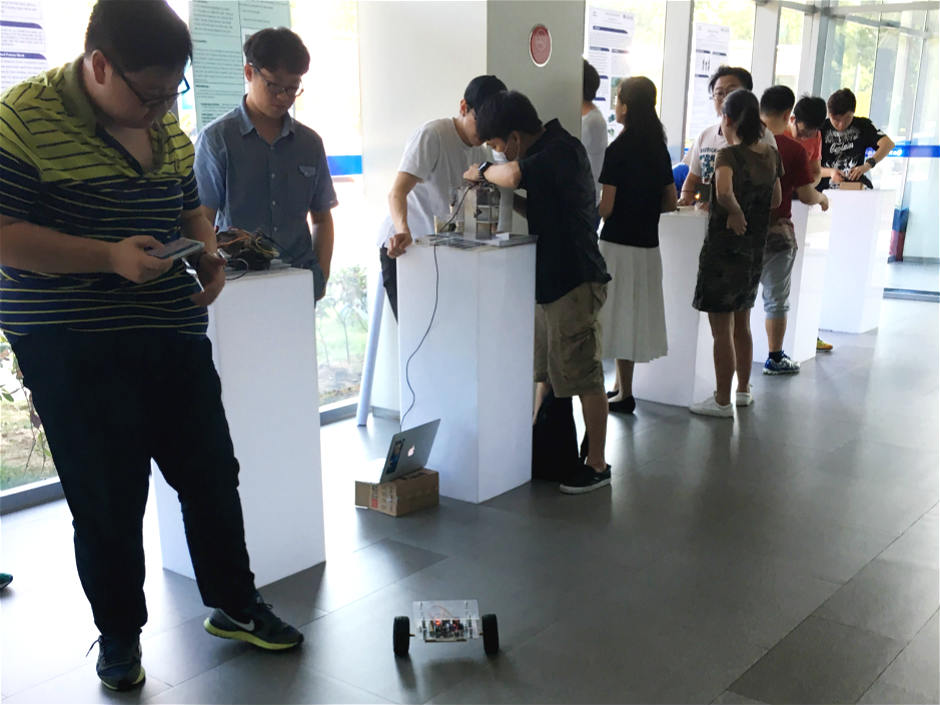
Dr Yang Du from the Department of EEE said that the project requires students to work in groups over four weeks to make intelligent devices that fit with the concept of sustainable development. Students are also required to use Arduino microcontrollers, sensors, and peripheral modules.
“This is probably the first time that students have really practiced what they have learned in their modules Digital Circuits, Analog Circuits, and Programming Languages. Most of them experienced some initial hardship, but they also experienced the joy engineers feel when completing projects,” said Dr Du.
One of the student groups was comprised of three girls, Minzhe Li, Yukai Fan and Shuning Liu. They found that the soup in a Chinese-style hot pot often boils away, leaving the pot dry or even burned, and so designed and made a device to add soup automatically when a liquid level sensor determines it necessary.
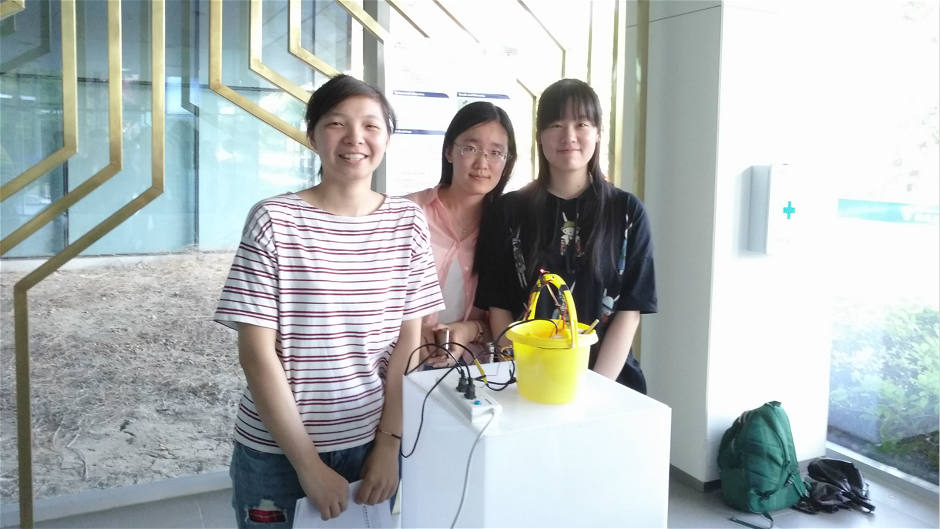
Ruoquan Wang’s group designed a smart home demonstration model, with solar panels used to power the entire system. Fans, self-operating curtains, and automatic plant-watering devices were controlled through temperature sensors, soil moisture sensors and light intensity sensors.
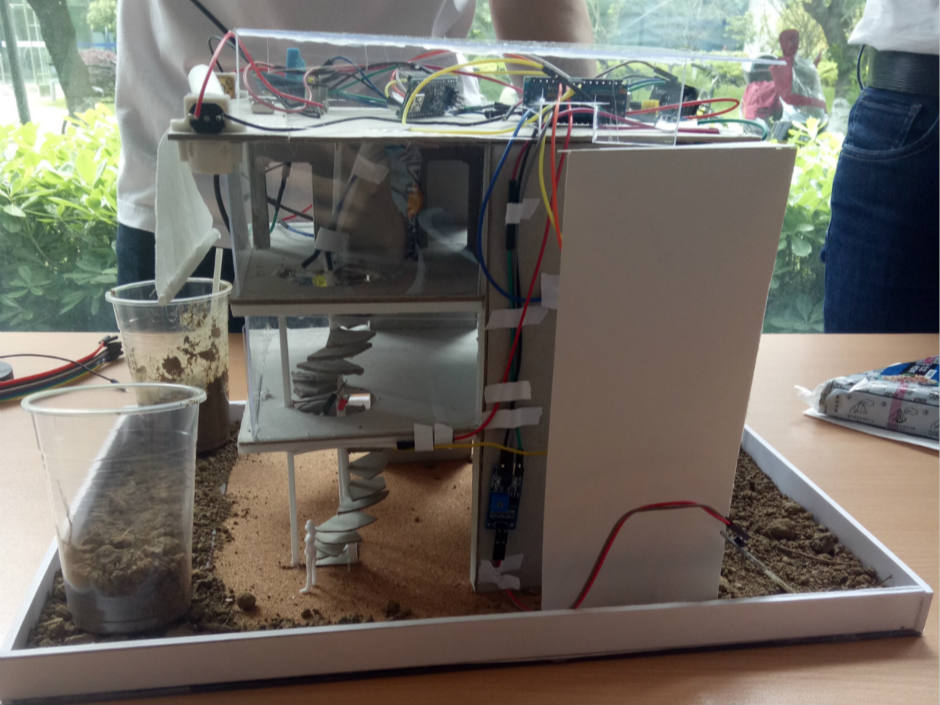
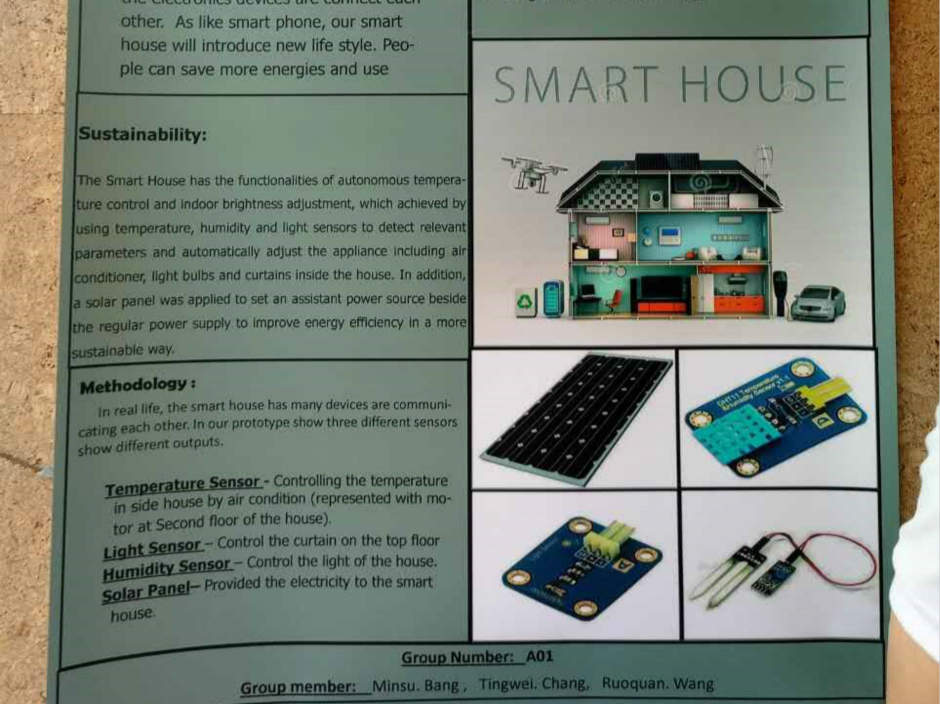
Kewei Du’s group integrated an Arduino microcontroller, acceleration sensor, ultrasonic sensor, oscillator and button into the design of a bicycle to make it safer for riders.
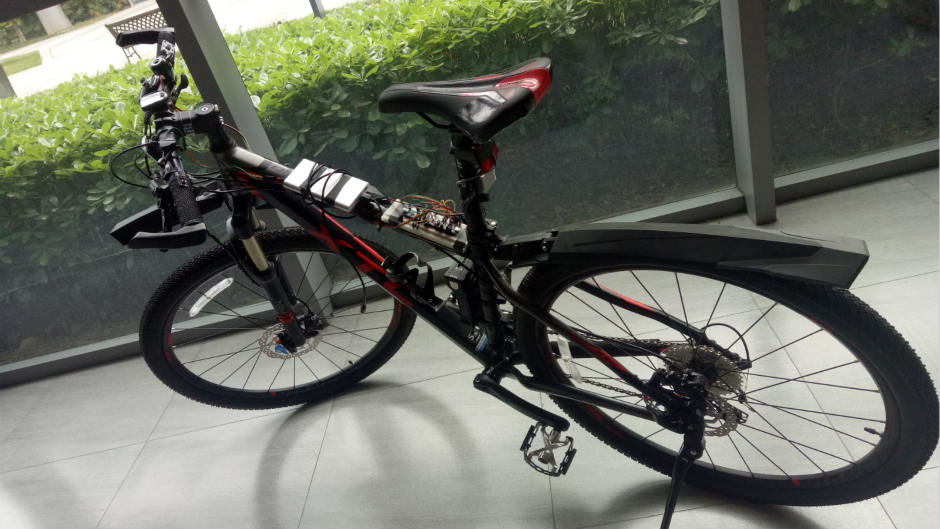
“The students’ work still needs a lot of improvement, and some of them haven’t yet realised all of the conceived functions of their projects; however, this is a good first step for them to become excellent engineers,” said Dr Du.
Dr Du explained that students learned how to use Arduino microcontrollers by practicing LED soldering, Arduino smart car building and programming, and making Arduino-based digital clocks.
Dr Du was very satisfied with the students’ involvement and attitudes in the ‘open project’, saying: “I found that every day many student groups were in the lab working on their designs, and discussing their design plans in the common room. This is the first time that they’ve really engaged in design work as engineers.”
All the development kits and modules used in this course are provided by TREEE Science & Technology Co., Ltd, which was established by XJTLU students.
translator: Guojuan Wang, editor: Danny Abbasi
21 Jun 2017
RELATED NEWS
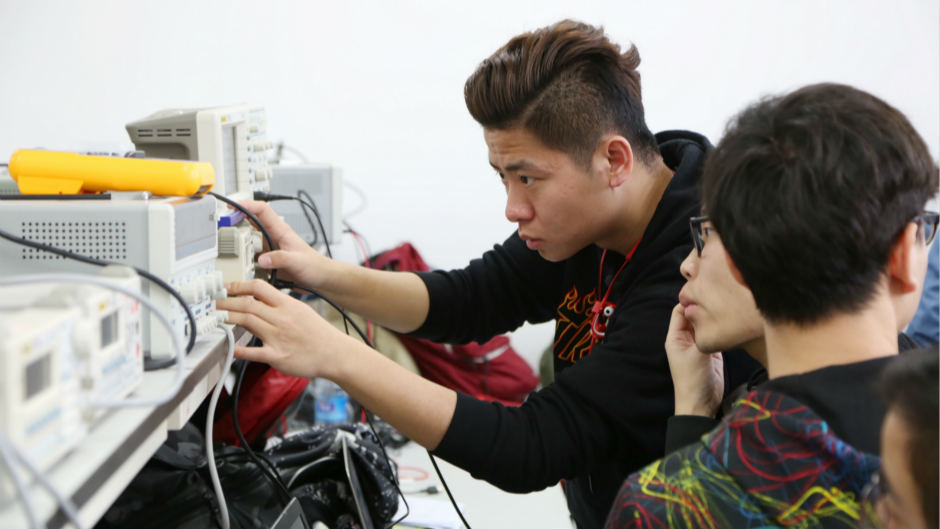
Video tutorials help engineering students gain practical skills
The Department of Electrical and Electronic Engineering at Xi’an Jiaotong-Liverpool University has been trying out new methods for teaching students how to u...
Learn more
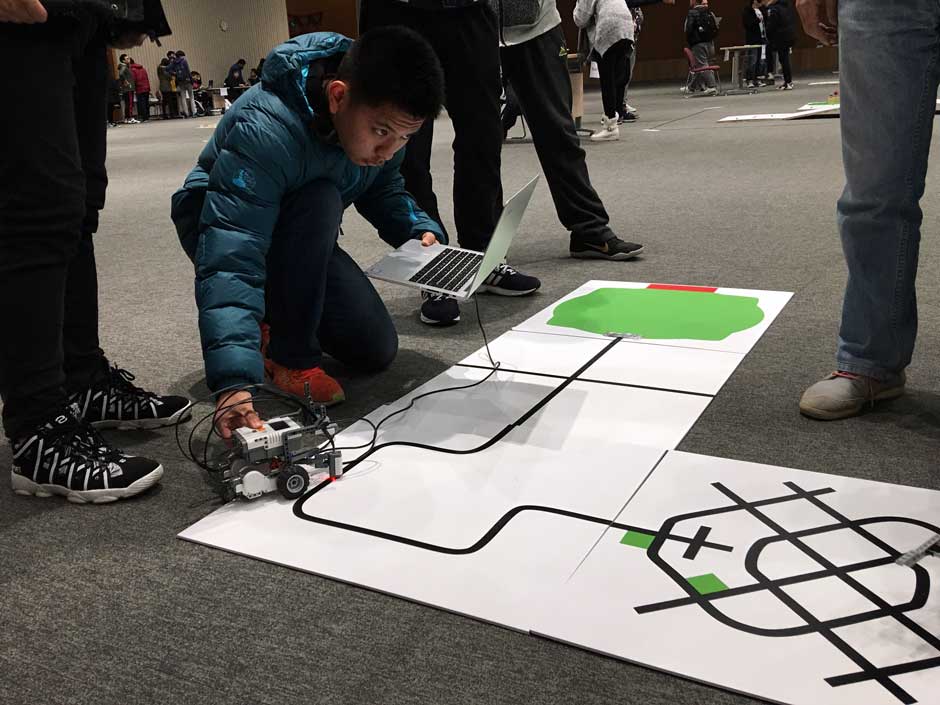
Students showcase their talents to design and programme robots
Nearly 600 Year One students at Xi’an Jiaotong-Liverpool University showcased the robots they had designed and programmed at an annual robot demonstration da...
Learn more
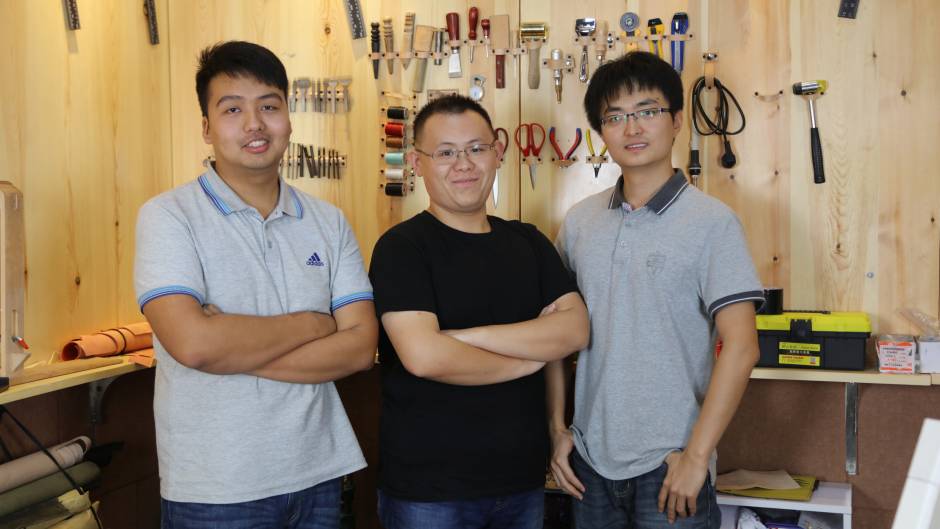
XJTLU student entrepreneurs are inspiring next generation of engineers
Three students at Xi’an Jiaotong-Liverpool University are hoping to inspire the next generation of electrical and electronic engineers with their educational...
Learn more
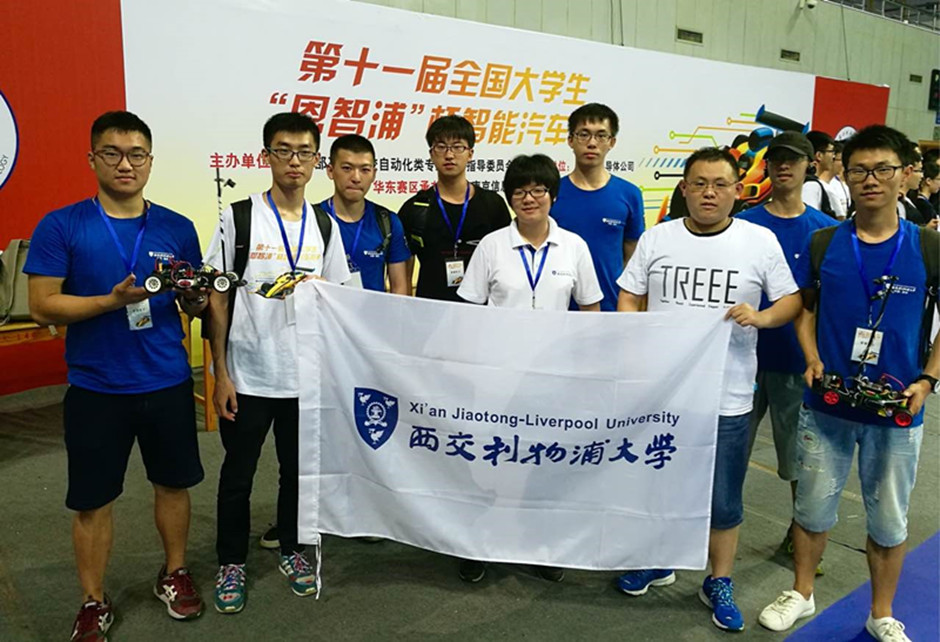
XJTLU students win at smart car racing competition
Two teams of students from Xi’an Jiaotong-Liverpool University won second place and runner-up prizes at the 11th National University Students Smart Car Compe...
Learn more








